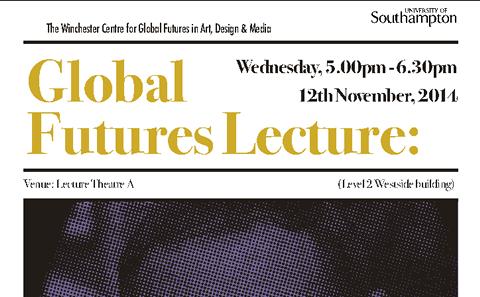Professor Christopher J. Berry - Guest Speaker Event

For more information regarding this event, please telephone Professor Joanne Roberts on 023 8059 6971 or email j.roberts@soton.ac.uk .
Event details
Luxury: A Dialectic of Desire?
Utilising as a framework Hegel’s tri-partite concept of dialectic thought, the chapter comprises 3 Parts.
I: Moralisation ie 'luxury' as a component of moralised normative vocabulary characteristic of 'classical' thought according to which 'poverty' is a good and the desire for bodily satisfactions manifest in luxury is bad so control of consumption is warranted. Moreover, commerce which serves those satisfactions is at best a lowly instrumental activity and at worst morally suspect.
II: Demoralisation ie the rejection of that evaluative context whereby now desires (including those for luxuries) are seen as effective motives and poverty (now meaning being impoverished) is bad, while control of consumption when not counterproductive is an unwarranted intrusion. Commercial societies that produce and consume luxuries are better than pre-commercial ones, as exemplified in David Hume's essays 'Of Refinement of Arts' and ‘Of Commerce (1752).
III: Remoralisation? ie examination of contemporary critiques of consumption in general, luxury in particular. Three are non-exclusively identified [a] Ethical - owning/desiring more creates unhappiness rather than happiness and the pursuit of luxuries is a hedonic treadmill undermining self-discipline, exacerbated by the growth of e-commerce [b] Social – the evanescent instability of luxury and its embodiment of a privatised and increasingly ‘virtual’ life-style erodes social capital and crowds out public space [c] Ecological/Green – current lifestyles where possession of luxuries is a mark of success wastefully deplete limited resources especially when a simpler more harmonious life of fewer desires is possible.
But is there any relevantly sustainable ground in terms of which luxury can be remoralised and the legitimacy of desires assessed? Are any supposed solutions practically tenable?
Christopher J. Berry is Professor (Emeritus) of Political Theory and Honorary Professorial Research Fellow at the University of Glasgow. A leading international scholar of the Scottish Enlightenment, he is the author of six books and recently co-edited Oxford Handbook of Adam Smith (OUP). His Idea of Luxury (Cambridge, 1994) has had widespread influence both outside and inside academia and appeared in a Chinese translation (Century Press, 2005). He is an elected Fellow of the Royal Society of Edinburgh (Scotland’s ‘national academy’).